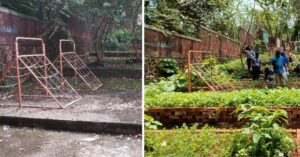This Conference Empowered 200 Students With Unique Ideas on Climate Change
The fifth International Conference on Sustainability Education (ICSE) by the Mobius Foundation saw educators helping students bring their unique eco-friendly ideas to fruition, the birth of a few startups, and over 15 countries coming together for collective action against climate change.
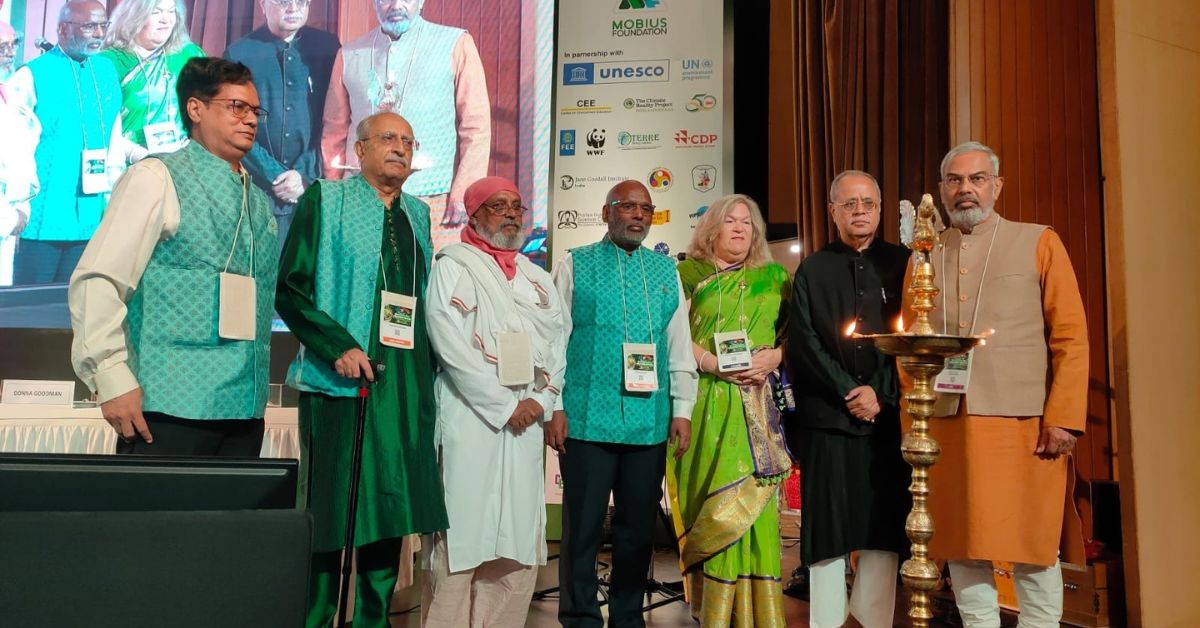
This article has been sponsored by Mobius Foundation
Once a woman starts menstruating, she will be bleeding once a month for approximately 35 to 40 years, using approximately 10,000 sanitary napkins during her lifetime, which end up in landfills. The plastic used in these pads is non-biodegradable and can lead to health and environmental hazards. According to Menstrual Health Alliance India, one sanitary pad could take 500 to 800 years to decompose.
Recognising this massive problem, a team of students from the Iconic School, Bhopal, started looking for a solution. They decided to make biodegradable sanitary pads with the resources they had in hand through their project BacWP. They used water hyacinth, bagasse and papaya fibre to make sanitary napkins while ensuring menstrual hygiene and proper waste decomposition.
They successfully demonstrated that students and young people can use their education to make a positive impact on society.
Their project received recognition at the Youth for Earth Campaign 2023 — a platform for young changemakers to showcase their innovations. Conducted by Mobius Foundation in partnership with The Climate Project Foundation, 200 youth groups participated in this campaign.
Ten of the best projects — made on the theme ‘United Nations Sustainable Development Goal 13: Climate Action’ — were rewarded at the fifth International Conference on Sustainability Education (ICSE). Five of these were awarded in the youth category (schools) and five in the senior category, which included colleges, universities and independent groups.
Project BacWP won the second prize of Rs 30,000 in the youth category.
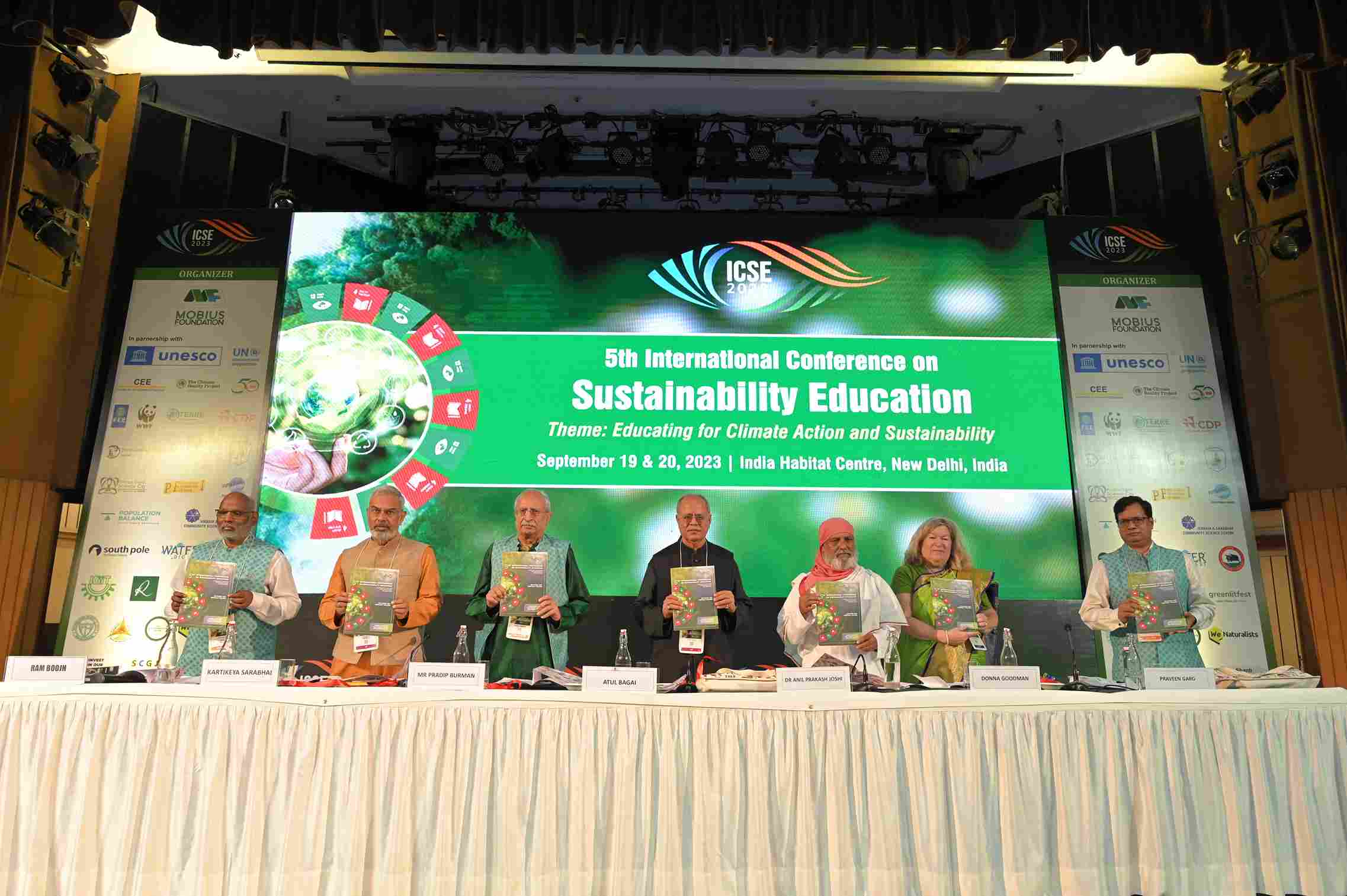
Fostering innovations through education
The winners of the first prize of Rs 50,000 were students of the Tribal Residential School Rohile, Nashik. Through their project ‘Neeraja’, they constructed continuous contour trenches and loose boulder structures in their village to address challenges such as soil erosion, water scarcity, flooding and runoff, groundwater depletion, and biodiversity loss.
The fifth International Conference on Sustainability Education (ICSE) proved just how important a role sustainability education plays in building a better future. True to the theme ‘Educating for Climate Action and Sustainability’, the conference provided a platform for students and youth to showcase their ideas and innovations for a better tomorrow.
“We are thrilled at the fact that 200 groups of young people have worked throughout the year on climate action. They are the future leaders, and we are glad to have given them a platform to amplify their voices. We will be further helping them to grow their venture by linking them with investors,” says Dr Ram Boojh, CEO, Mobius Foundation.
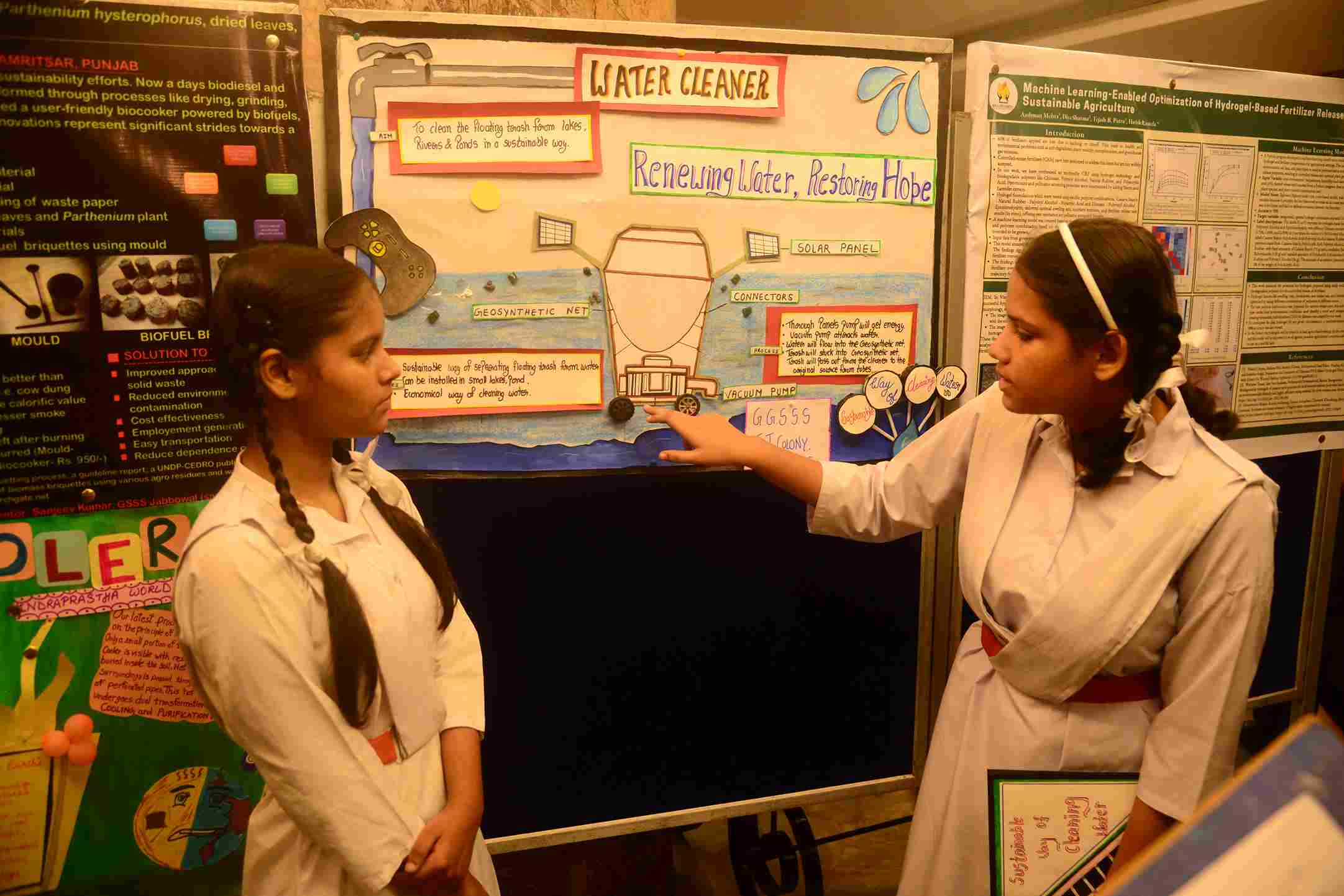
Two innovative projects under the “Innovation for Sustainable Challenge” were selected to receive funding and were successfully launched at the event — A cost-effective bio-cooker and production of biofuel by Harmandeep Kaur from Government Senior Secondary School (GSSS), Jabbowal, Amritsar, and Aero Radiant by Amit Kumar and Dipanshu Sehrawat, Army Public School, Hissar.
“These ventures are by young entrepreneurs from Pushpa Gujral Science City, Punjab,” adds Dr Ram.
The event saw over 600 global thought leaders, educators, policymakers, and environmentalists from over 15 countries, rallying for concerted efforts against climate change.
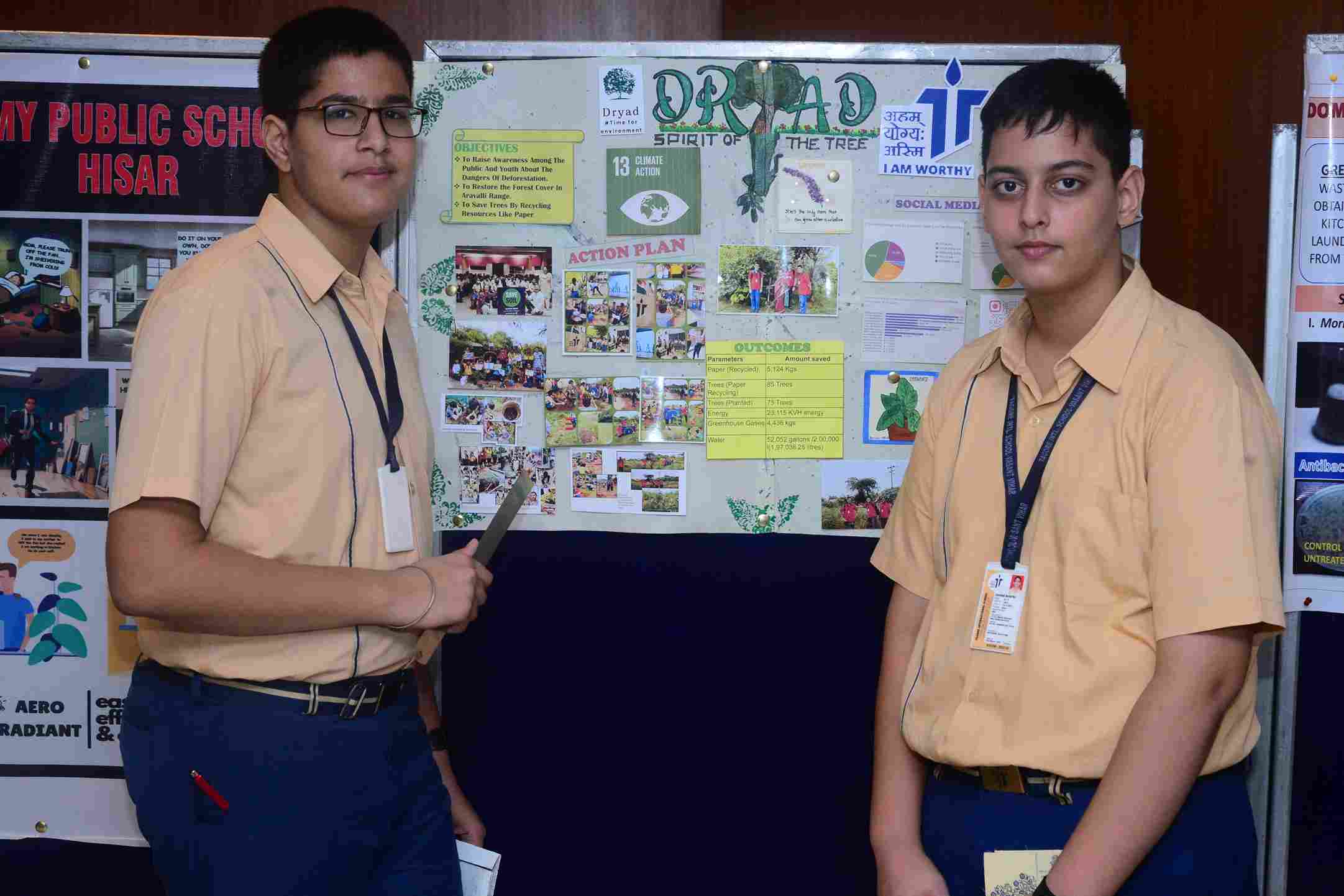
“At ICSE 2023, we deepened discussions on the critical matters of climate change and sustainability. A diverse group of minds came together from around the world, sparking a ray of hope. Through passionate conversations and forward-thinking projects, we ushered in a new era of sustainability education. Let this be our shared commitment — to educate, empower, and lead the way toward a greener, more sustainable future for everyone,” Dr Ram, CEO Mobius Foundation shared.
The conference unfolded through hybrid sessions, blending physical participation with a global virtual presence. More than 1,000 attendees participated in 18 plenary sessions and 20 parallel thematic sessions, workshops, panel discussions, and presentations — creating an immersive experience aimed at inspiring transformative action.
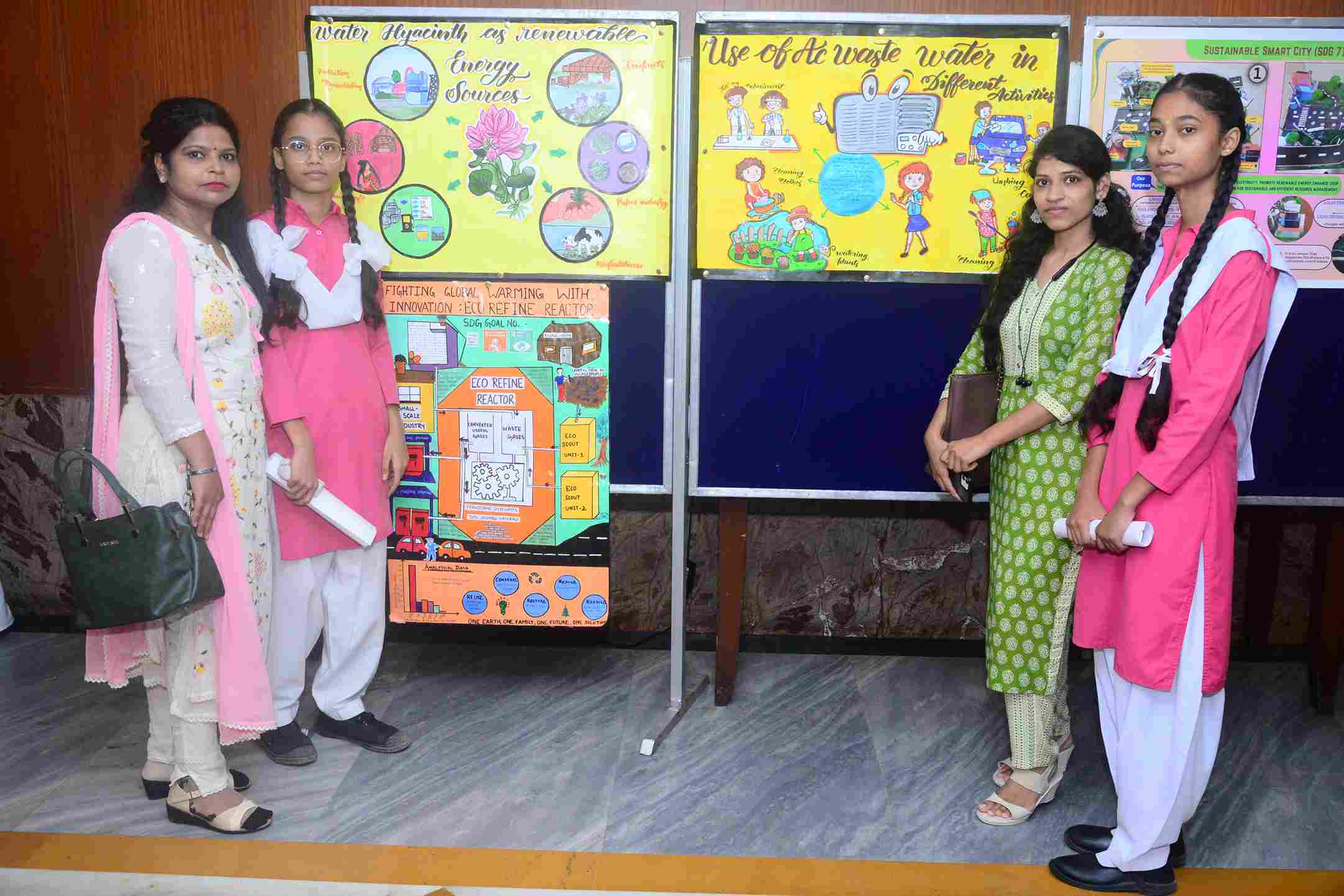
Creating 100 new sustainable startups
One of the most impactful outcomes of the conference was the partnership with ‘Sustainability Mafia’ to create 100 new sustainability ventures. The Sustainability Mafia is a climate action community of more than 70 sustainability-focused founders who are leading the charge toward a greener future.
They conducted a session titled ‘Teaching Disciplined Entrepreneurship to Create 100 New Sustainability Ventures’, through which they brought together educators and investors. Their idea is to inspire and equip students to take on sustainability challenges as entrepreneurs.
“Our mission is crystal clear: to empower the next generation of changemakers with the tools, mentorship, and transformative technologies needed to turn sustainable ideas into impactful ventures. This program goes beyond ideation; it focuses on providing the right problem statements to foster scalable sustainable businesses. The overwhelming response from ICSE has reaffirmed our unwavering belief in this transformative program. Together, we stand poised to revolutionise the sustainability entrepreneurship landscape and create a brighter, more sustainable tomorrow,” says Arjun Gupta, co-founder of Smart Joules and Sustainability Mafia.
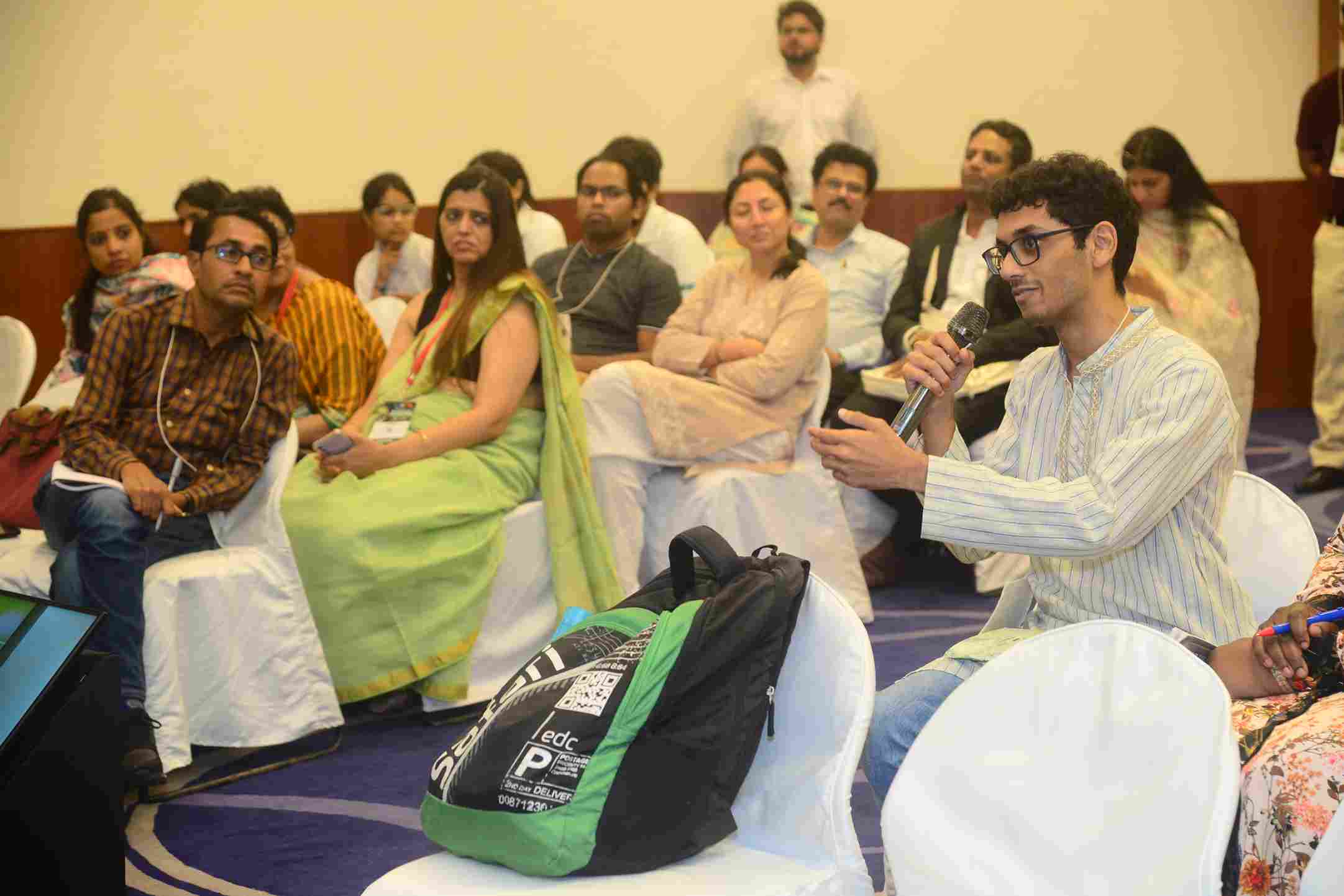
These were some of the sessions that solidified ICSE’s position as a catalyst for innovation and collective action.
Prominent people attended ICSE — including Pradip Burman, chairman, Mobius Foundation, and Atul Bagai, country head, UNEP, India Office, who was the chief guest at the event.
Notable dignitaries included environmentalist Jadav Payeng, known as the Forest Man of India; Dr Anil Prakash Joshi, Founder of HESCO; Dr Jane Goodall, DBE, founder of the Jane Goodall Institute, and UN Messenger of Peace; Ms. Donna Goodman, founder of Earth Child Institute, USA; Poonam Muttreja, executive director of PFI; and environmentalist Kartikeya Sarabhai, founder director of the Centre for Environment Education (CEE) and Mr. Sanjay Awasthi, Head, UN Migration Office India, among others.
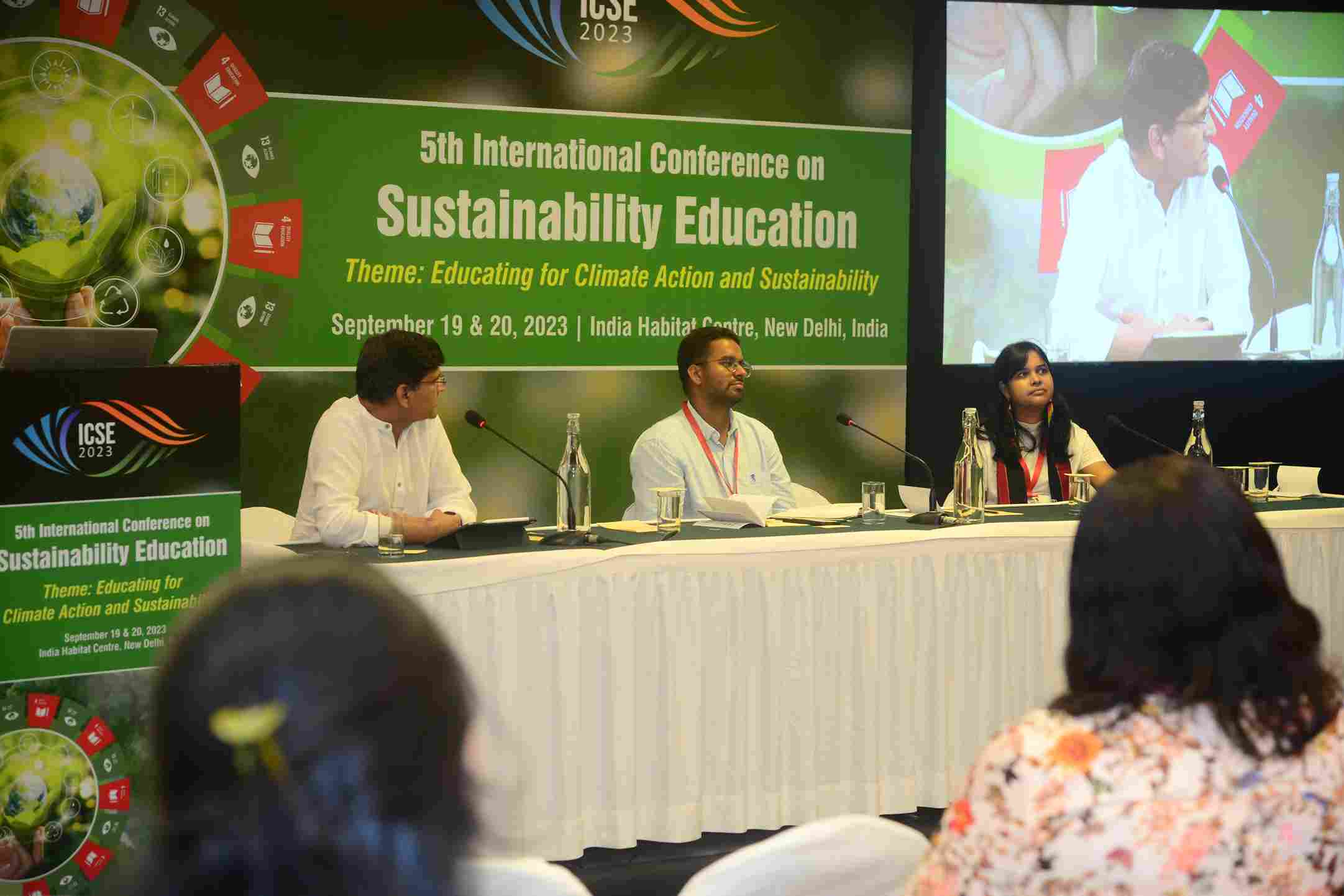
Jadav Payeng said, “We should transcend the boundaries of religion and nationality, and unite in our efforts to safeguard Mother Nature. I am committed to educating the 800 crore population of the country about loving Mother Earth. If every student commits to planting a tree once a year, we can collectively enhance the Earth’s livability and create a sustainable earth for them.”
Edited by Pranita Bhat; All pictures courtesy: Mobius Foundation
If you found our stories insightful, informative, or even just enjoyable, we invite you to consider making a voluntary payment to support the work we do at The Better India. Your contribution helps us continue producing quality content that educates, inspires, and drives positive change.
Choose one of the payment options below for your contribution-
By paying for the stories you value, you directly contribute to sustaining our efforts focused on making a difference in the world. Together, let's ensure that impactful stories continue to be told and shared, enriching lives and communities alike.
Thank you for your support. Here are some frequently asked questions you might find helpful to know why you are contributing?






